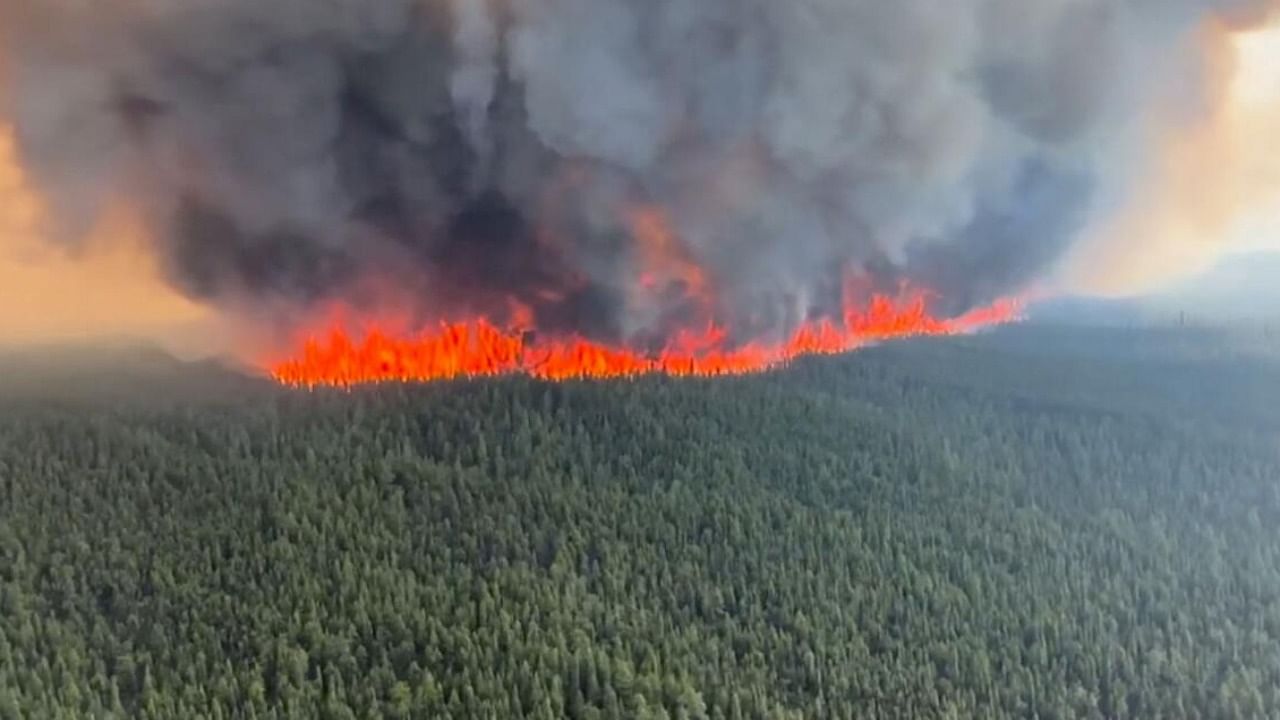
Wildfires spread in the western Canadian province of British Columbia on Friday, while hundreds of fires continued to burn on the other side of the country in Quebec, sending wildfire smoke billowing across North American cities.
Around 2,500 people were told to evacuate the community of Tumbler Ridge in northeastern British Columbia on Thursday afternoon.
Officials also expanded evacuation orders for the Donnie Creek fire, the second-largest recorded in the province, in the Peace River region.
Temperatures in parts of British Columbia soared to more than 30 degrees Celsius (86 Fahrenheit) this week, nearly 10 degrees above the seasonal average. While rain is expected over the weekend there is a risk of lightning strikes that could spark more fires.
In neighboring Alberta more than 3,500 people remain under evacuation orders and heat warnings were in effect over much of the central part of the province.
"Albertans are asked to continue to be diligent as hot and dry conditions are expected this weekend," the provincial government said in a fire bulletin released late Thursday afternoon.
Wildfire smoke continued to plague millions of people across eastern Canada and the northeastern United States, although firefighters made progress in containing some of the massive blazes burning in the province of Quebec.
Poor air quality is expected to persist in cities including Ottawa, Toronto, New York and Washington until Sunday when the wind direction shifts.
Canada is enduring its worst start to the wildfire season. There have been 2,372 fires so far this year and 4.3 million hectares (10.6 million acres) burned, according to the Canadian Interagency Forest Fire Centre (CIFFC), roughly 15 times the annual average over the last decade.
Also Read | Smoke from Canada wildfires deteriorates New York air quality; surpasses New Delhi's pollution level
Nearly a third of the 427 fires currently burning across Canada are in Quebec, more than any other province.
The situation is stabilizing, Premier François Legault told reporters in an update on Thursday, although 13,500 people are still unable to return home. Rain is expected in Quebec and neighboring Ontario on Monday.
Although wildfires are common in Canada, it is unusual for blazes to be burning simultaneously in the east and west, stretching firefighting resources and fuelling concerns about the worsening consequences of climate change.
Firefighters from countries including South Africa, Australia and New Zealand, as well as hundreds of U.S. firefighters, have arrived in Canada to help tackle the blazes. (Reporting by Nia Williams in British Columbia; Editing by Stephen Coates)